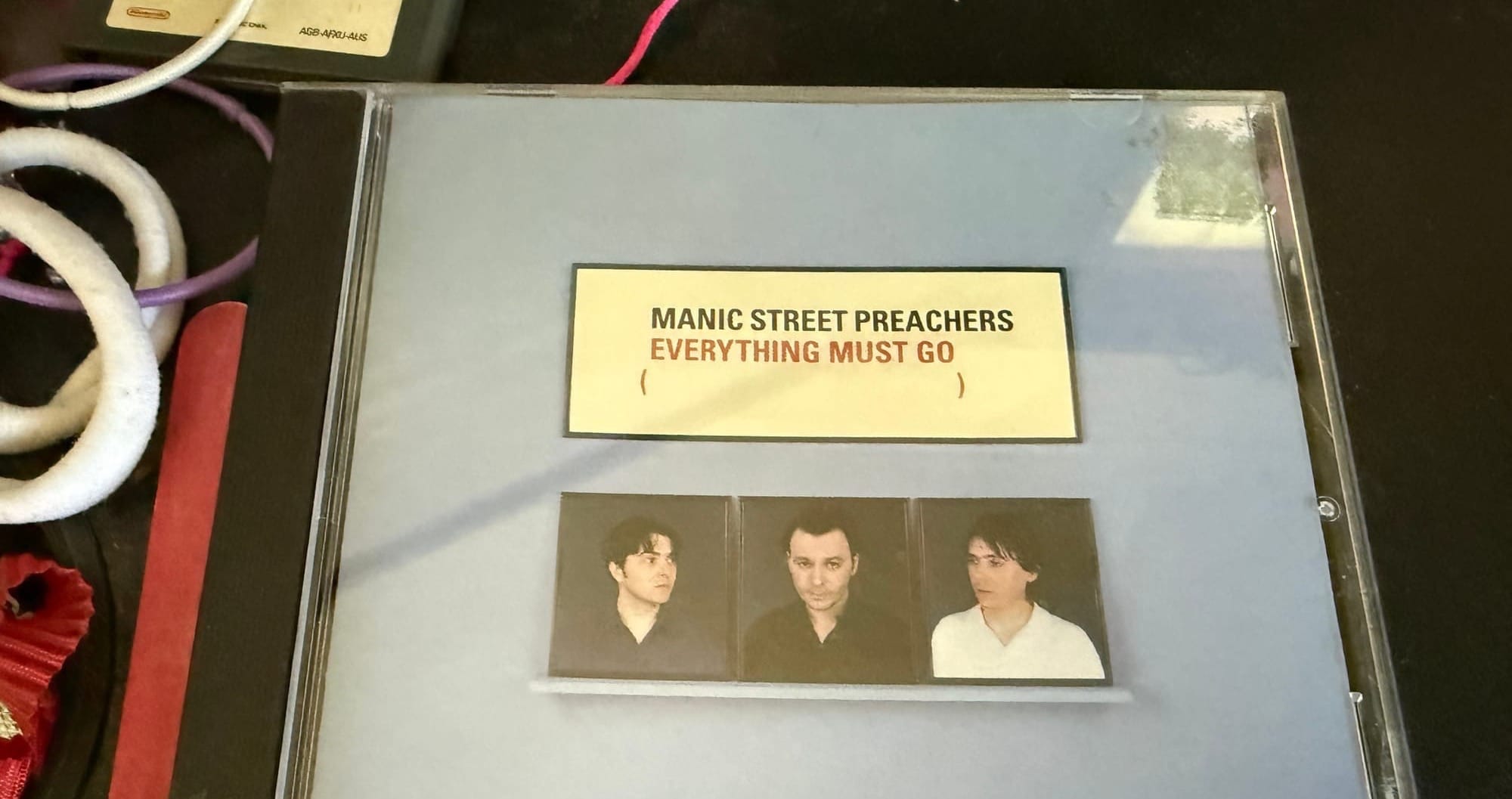Everything Must Go

It’s 1999 and I’m standing in a field at the Melbourne Showgrounds. It’s warm but overcast. In front of me is the second main stage at the Big Day Out, and up there, on stage, are the Manic Street Preachers.
Around me, there’s only a small crowd, people mostly sitting around waiting for bigger acts to play. Aside from a few diehards near the front of the stage, I feel like I’m the only one really paying attention.
The Manics are giving it their all. It’s five years since co-songwriter and sometime guitarist Richey Edwards vanished without a trace, and they’re two albums past that. The crowd seems indifferent. The set consists mostly of those two albums. I recognise the singles, Everything Must Go, A Design For Life, Tsunami and Australia, which gets the biggest roar despite it not really being about the place it’s named for.
I’ve heard in the years since that crowd disinterest led to them cutting the set short by about fifteen minutes. I do remember feeling like it ended early, but as an attendee at the Big Day Out, it’s always hard to know.
Whether or not that’s true, I know that the short set had a big impact on me. I realised I had missed this amazing band completely as they’d been putting out some of the best music of the era. Of course, having had the income of a teenager at the time, I had to make careful decisions about what CDs I was going to buy, and by the time of Everything Must Go, I was mostly about the electronic music. Rock seemed so… old hat, so I just never bought it.
That was absolutely to my regret, as I discovered when I did finally pick up the album about a decade later. It’s an absolutely killer album, and I think it would have been a pretty big influence on teenage me had I owned it in 1996. It’s a fantastic album, and in the years since I bought it, the Manics have gone on to become one of my favourite bands.
In its time, Everything Must Go was a huge deal for the band too. It came 18 months after their incredible 1994 release The Holy Bible, one of the darkest, most intense listens of the 1990s. Without getting too deep into it, the album documents the rapidly declining mental state of the band’s main lyricist and rhythm guitarist, Richey Edwards. Six months after its release, he would disappear from a London hotel, never to be seen again.
His disappearance casts a dark shadow over Everything Must Go. Sound-wise, the band adds strings to its guitar heavy sound, going for a Phil Spector-inspired wall of sound effect on many tracks. It might have been divisive were it not for the circumstances in which it happened. The album would go on to be the Manics’ most commercially successful to that point in their career, and would lay the groundwork for the success of their next album, This Is My Truth Tell Me Yours.
Listening to it again today, and knowing the rest of their catalog, Everything Must Go feels transitional. The band was forced into an impossible situation with Richey’s disappearance, the pain of not knowing his whereabouts or even if he was still alive (he would be declared legally dead in 2008). They come out of it with some of their strongest music to that point in their career, and some of their most iconic tracks, like A Design For Life, Australia, Everything Must Go and Kevin Carter are on this album.
For me, the Manic Street Preachers now sit alongside R.E.M. and New Order as one of my favourite bands ever. I was late to the party, but I’m glad I showed up. If you only know them for the fact that one of their members vanished without a trace, then it’s time to get acquainted with their music, all of which you can find on your favourite music streaming service. Everything Must Go is a good entry point, and you can then jump both forwards and backwards across their career. They’re a great band that never quite got the recognition they deserved outside of the U.K., and they’re still putting out really good albums to this day. Whatever you do, don’t sleep on the Manics.